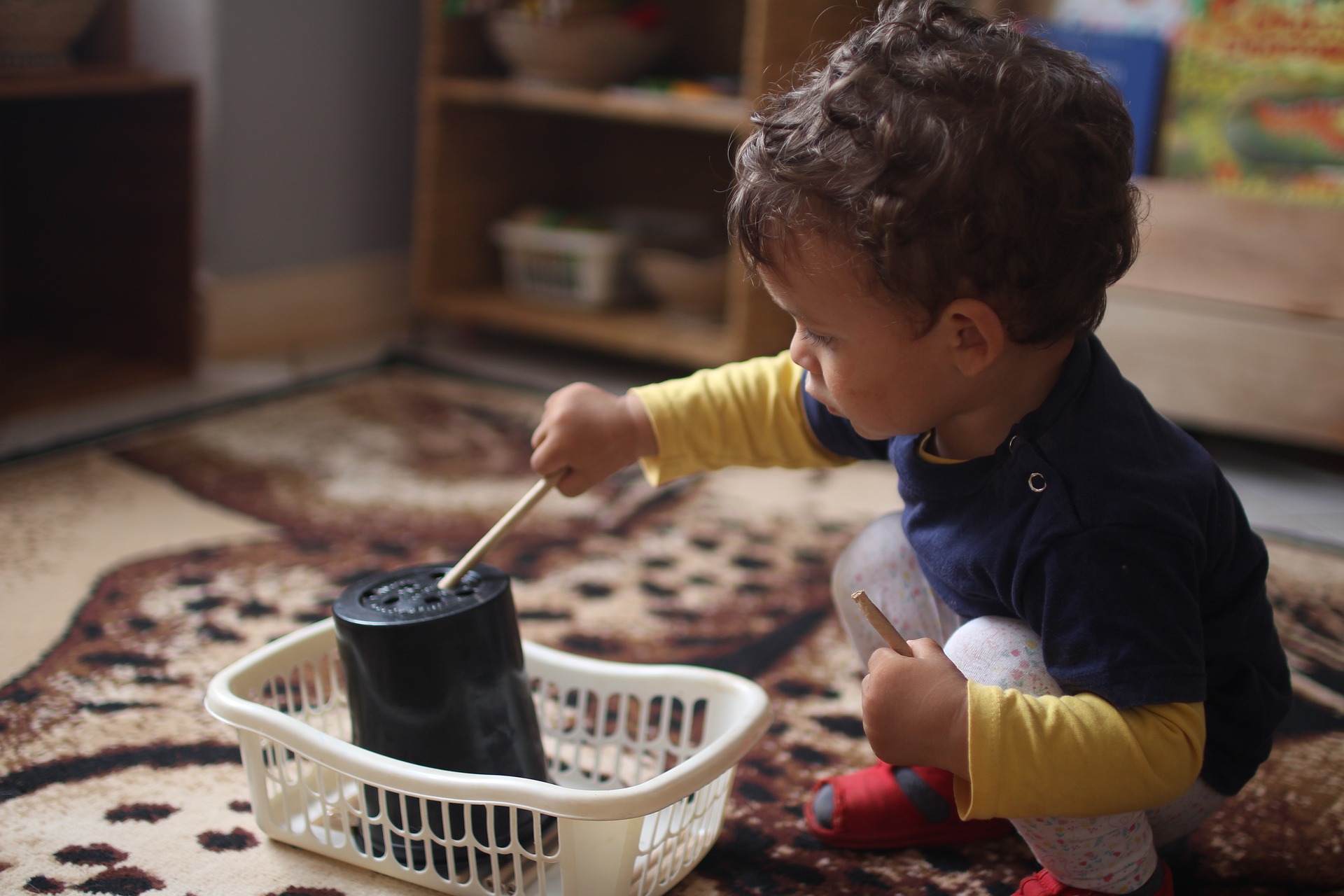The toddler program is a caring, social environment specifically designed to meet the learning needs of young children.
The prepared environment encourages children to explore materials that allow them to work at their own pace and develop self confidence, self control and independence. All materials are designed with control of error to aid children’s moves with grace and courtesy and most importantly to become confident in their environment. The prepared environment practices the five following areas:
Practical Life: Montessori believed that learning practical life skills was one of the best ways for young children to practice and develop their fine and gross motor skills, develop confidence in their abilities, develop independence, and learn to get along with others. Practical life skills include such things as cleaning and caring for the environment, and preparing food.
Sensorial: This part of the curriculum gives the child a means to organize his environment. They are given the opportunity to make comparisons: longer, shorter, broader, narrower, color names, etc. They build the mental frame for organization through the senses of touch, smell, sight and sound.
Language: This area centers on vocabulary enrichment and matching and sequencing activities. There are activities featuring both letter recognition and letter sounds. The skills used in matching (visual distinction) and sequencing are pre-reading skills.
Math: Many activities in the Toddler class include concepts such as one to one correspondence, and “greater than/ less than” and “as many as”. Activities with numerals and quantities are used up to the number 5.
Culture: This area encompasses introduction to zoology, science, art and music.

The prepared environment encourages children to explore materials that allow them to work at their own pace and develop self confidence, self control and independence.